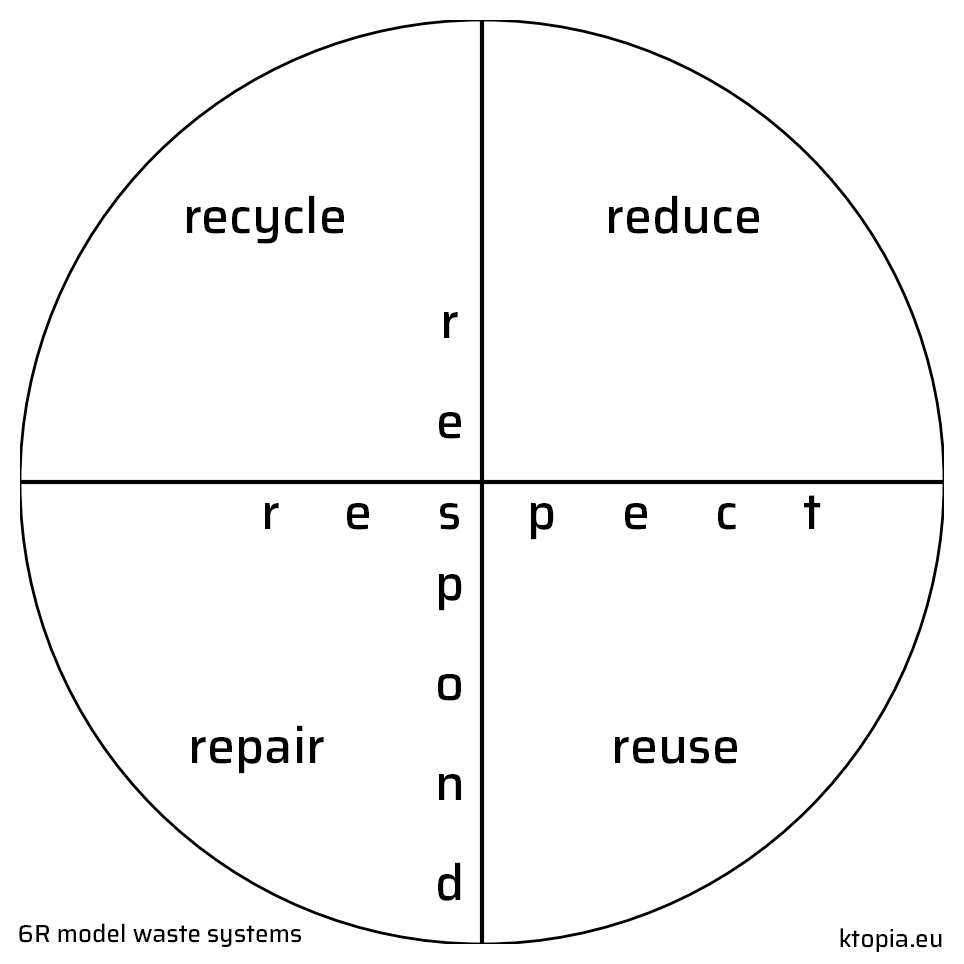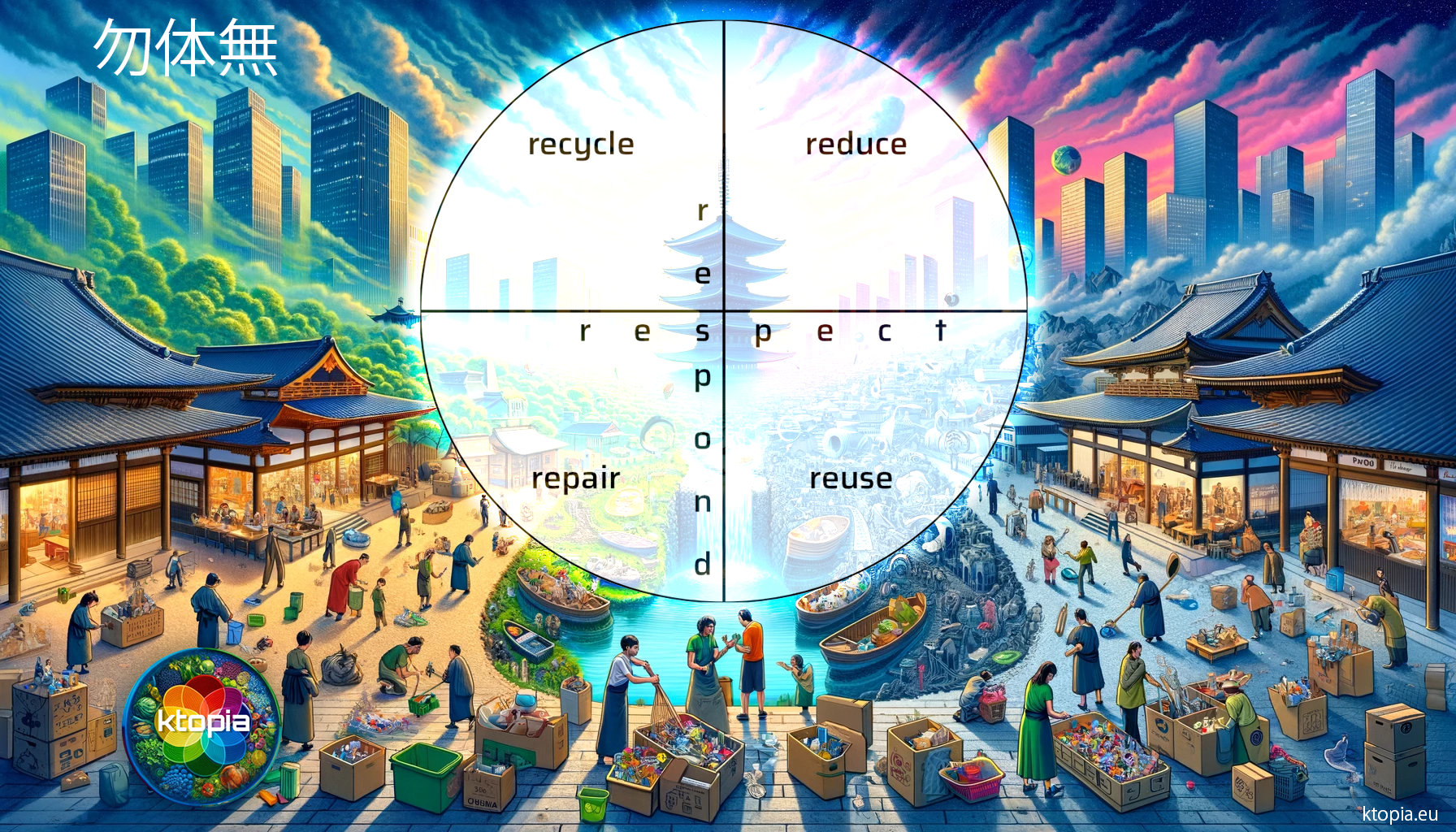“Mottainai” – A significant factor in Japans effective smart waste management system
While comparing different countries and their waste management systems from statistics to the mindsets and models behind I came across another beautiful, helpful meme from Japan, known for it´s mindful, simple words describing not just a policy but a philosophy: “mottainai.” This term, which merges respect for resources with practical conservation efforts, serves as a cornerstone of Japan’s environmentally conscious mindset and exemplary waste management system.
In recent years, “mottainai” has gained international recognition as a versatile principle for environmental conservation and sustainable living. Nobel Peace Prize laureate Wangari Maathai popularized the term outside Japan by adopting it as a motto for her environmental and social justice work in Africa. The concept aligns closely with the 3Rs of waste management (Reduce, Reuse, Recycle) but adds a fourth, “Respect,” to highlight the importance of respecting the earth’s resources.
Cultural attitudes towards cleanliness, respect for resources, and community responsibility play a significant role in the effectiveness of Japan’s waste management system. The concept of “mottainai” (a sense of regret concerning waste) permeates Japanese society, encouraging frugality and the mindful use of resources. Japan has, like Germany, implemented EPR policies (Extended Producer Responsibility), requiring manufacturers and retailers to take responsibility for the disposal of products and packaging. This includes obligations for recycling and has led to innovations in sustainable product design in Japan to reduce waste and improve recyclability.

The 6R-waste Approach
To fully articulate the breadth of “mottainai,” I propose an expanded 6R framework, which includes 2 basic mindsets and 4 practical applications.
-
Respect: Recognize and appreciate the intrinsic value of resources.
-
Respond: Act responsibly towards valued resources.
-
Reduce: Minimize consumption to prevent waste.
-
Reuse: Identify new uses for items, extending their life.
-
Repair: Design products for durability and ease of repair.
-
Recycle: Transform used items into new products.
In the graph, the x-axis, common ground and horizon is “Respect”. The y-axis, the depth and heights is Respond. Both build the foundation pillars for the Circle and Quadrants. The 4 practical applications of Mottainai. Reduce Waste wherever possible. Reuse waste in creative ways. Repair items as long as you can. Recycle if the end of the product has come.
A consequence of the 6R mindset would be Exnovating the dominant product life cycles trimmed for short life spans of products to sell new stuff quickly and dispose of the outdated version as waste or second markets in developing countries. We should encourage markets for repairabilities both within products as well as repair and enhance service small businesses. Back to
Mottanai. Daily Life and Traditional Wisdom
In Japan, “mottainai” influences various aspects of daily life, from minimalistic product packaging to the diligent sorting of waste for recycling. It is also evident in traditional practices such as kintsugi (the art of repairing broken pottery with gold or silver lacquer), which not only fixes objects but adds value to them, celebrating their imperfections and history. Repairability is another key foundation for reuse and respect in practice.
“Mottainai” as a Japanese term also connotates a sense of regret concerning waste, reflecting the belief that it is shameful to waste anything valuable. The concept has deep roots in Japanese culture, tying into broader values of respect, gratitude, and conservation. While “mottainai” can be applied to any form of waste, including time or opportunity, it is particularly relevant in the context of environmental sustainability, where it encourages efficient use of resources and waste reduction.
Historically, “mottainai” is thought to have Buddhist origins, which promote living a life of moderation and avoiding excess. This philosophy dovetailed with Shinto beliefs that imbue natural and manufactured objects with a spirit, suggesting that wastefulness not only disrespects the physical item but also the labor and resources that went into creating it. Over time, these religious and philosophical influences have cemented “mottainai” as a guiding principle in Japanese daily life and smart waste management system.
Conclusion
Mottainai embodies the transformative power of narratives and memes, that are simple, intuitive, and wise, sparking citizen participation more effectively than traditional, imperative “calls to actions” that react to alarming facts. Its principles serve as invaluable tools for educational initiatives in smart waste management—a system in which we all inherently participate.
Embracing these practices could significantly enrich our lives, guiding us towards a lifestyle that is respectful and responsible. By focusing on what truly brings us joy, and emphasizing the importance of objects being reusable, repairable, and recyclable, we can contribute to a sustainable future without the burden of shame and guilt often linked to Mottainai. Instead, we can find joy and creativity in being part of a living narrative that not only manifests in our everyday actions but also drives the circular economy forward.
